The Nubia Z80 Ultra's 35mm lens delivers pro-quality optical bokeh and a natural feel. But it's inconsistent, and the front-facing camera is bad.

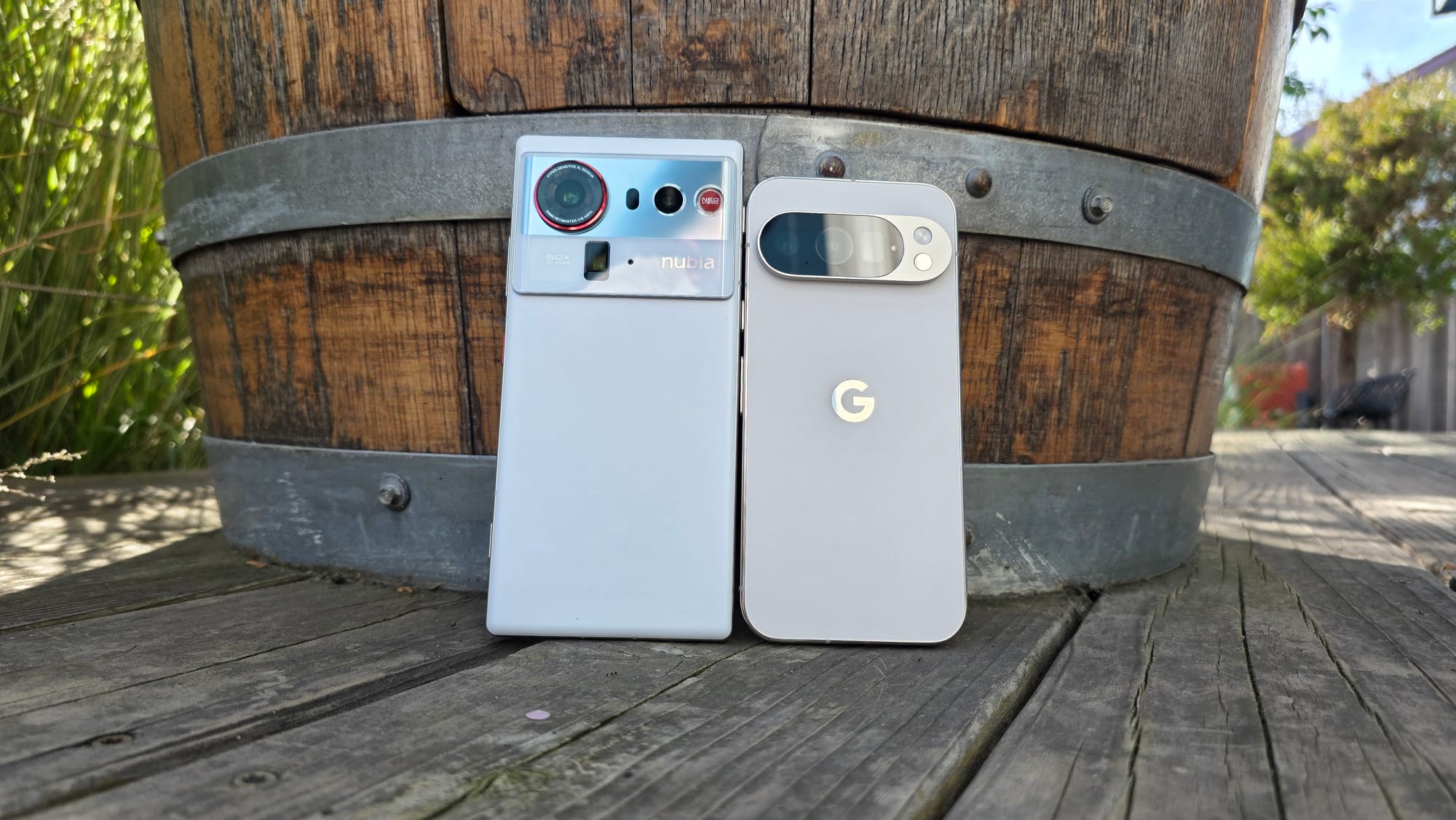
The Nubia Z80 Ultra's 35mm main lens is a standout feature, promising a pro feel and natural, optical bokeh. Varying reviews swear it's a camera fit for enthusiasts. The Z80 Ultra is a direct challenger to the Pixel 10 Pro, currently crowned the king of computational photography, which often relies on software magic to capture the perfect shot every time. I put them head-to-head to see which philosophy wins: purpose-built optics or computational reliability.
My first test was a bright, sunny street scene. The Nubia Z80 Ultra's 35mm "street" lens immediately showed its tighter, more focused framing compared to my Pixel 10 Pro's standard wide. While the Nubia's look is great for isolating subjects, it struggles with the bright light, tending to blow out the highlights. The Pixel's computational smarts clearly won this round, delivering a perfectly balanced exposure. It's a clear trade-off: the Nubia's "pro" focal length versus the Pixel's "pro" processing.
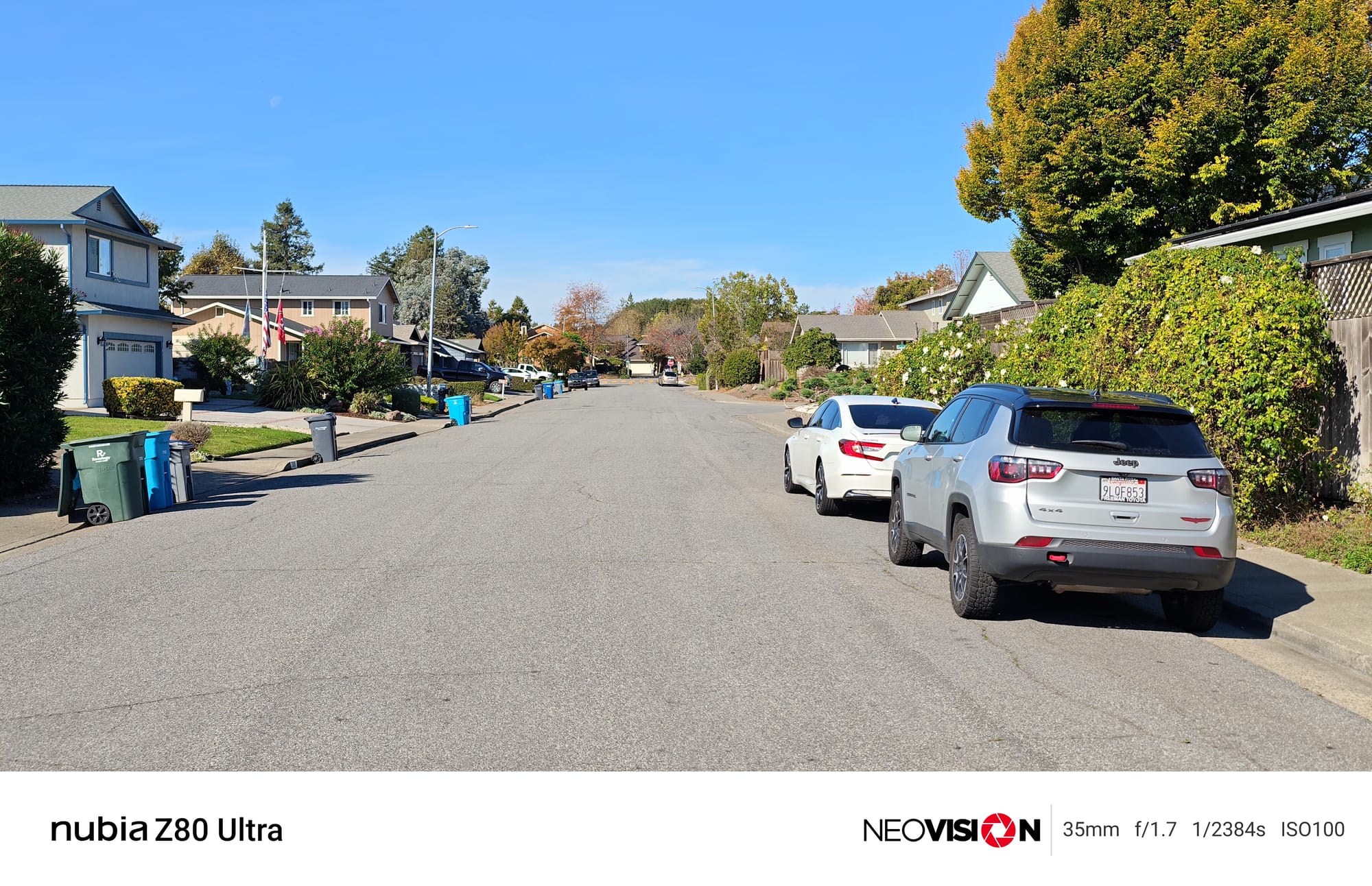
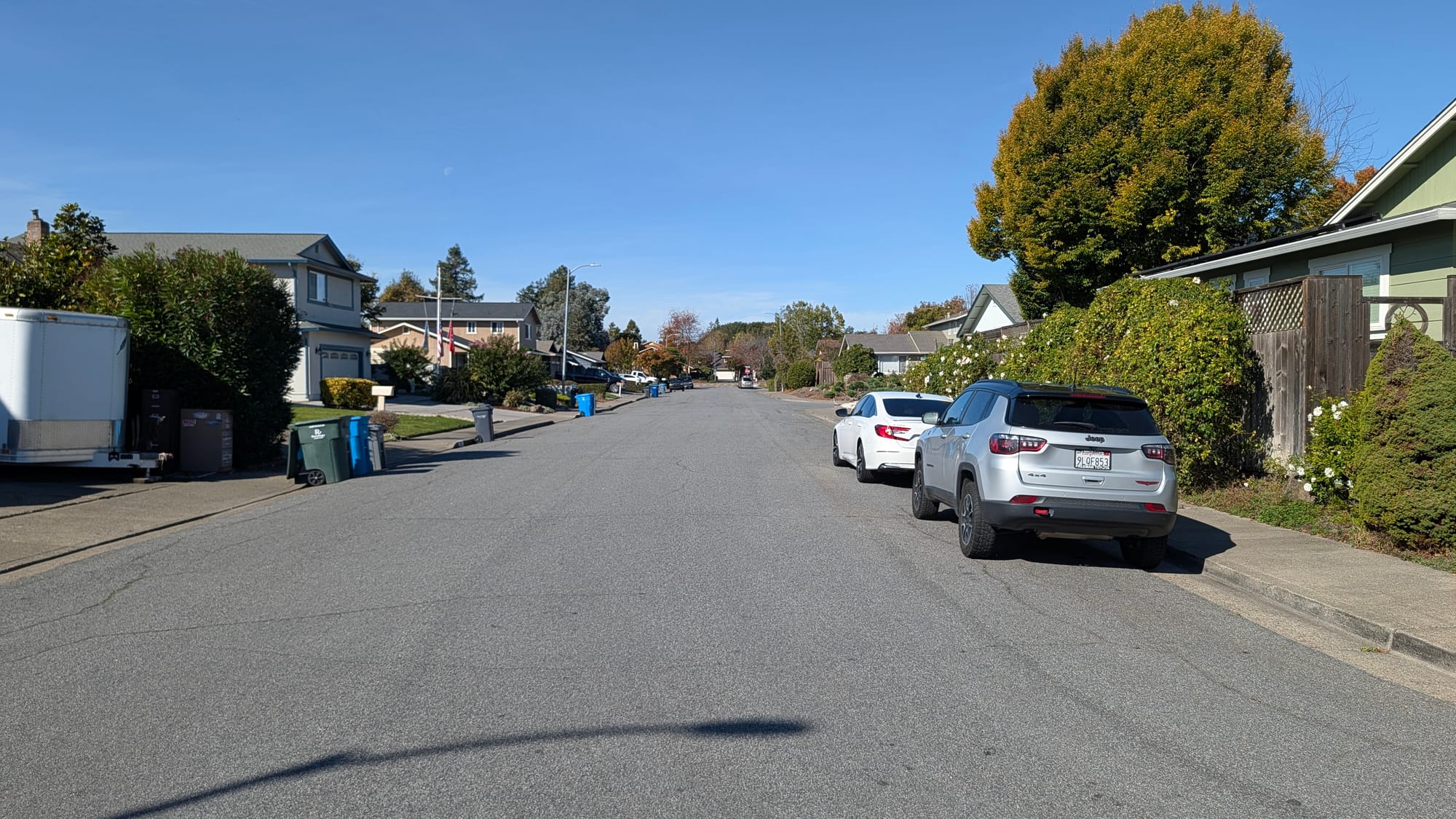
The Street Test. Image: Jason Howell/Android Faithful
My dog Brawnson modeled for a portrait test in the bright backyard. While both phones admirably captured the fine detail in the grass, the Pixel's processing pulled out just a bit more definition on Brawnson's face. The Nubia, aside from its signature tighter framing, showed a tendency to over-brighten the entire scene, although not as much as in the street test. This fact gives the Pixel the edge in terms of subject clarity in harsh light, even if the Nubia's framing felt more "portrait-ready" without any special modes.
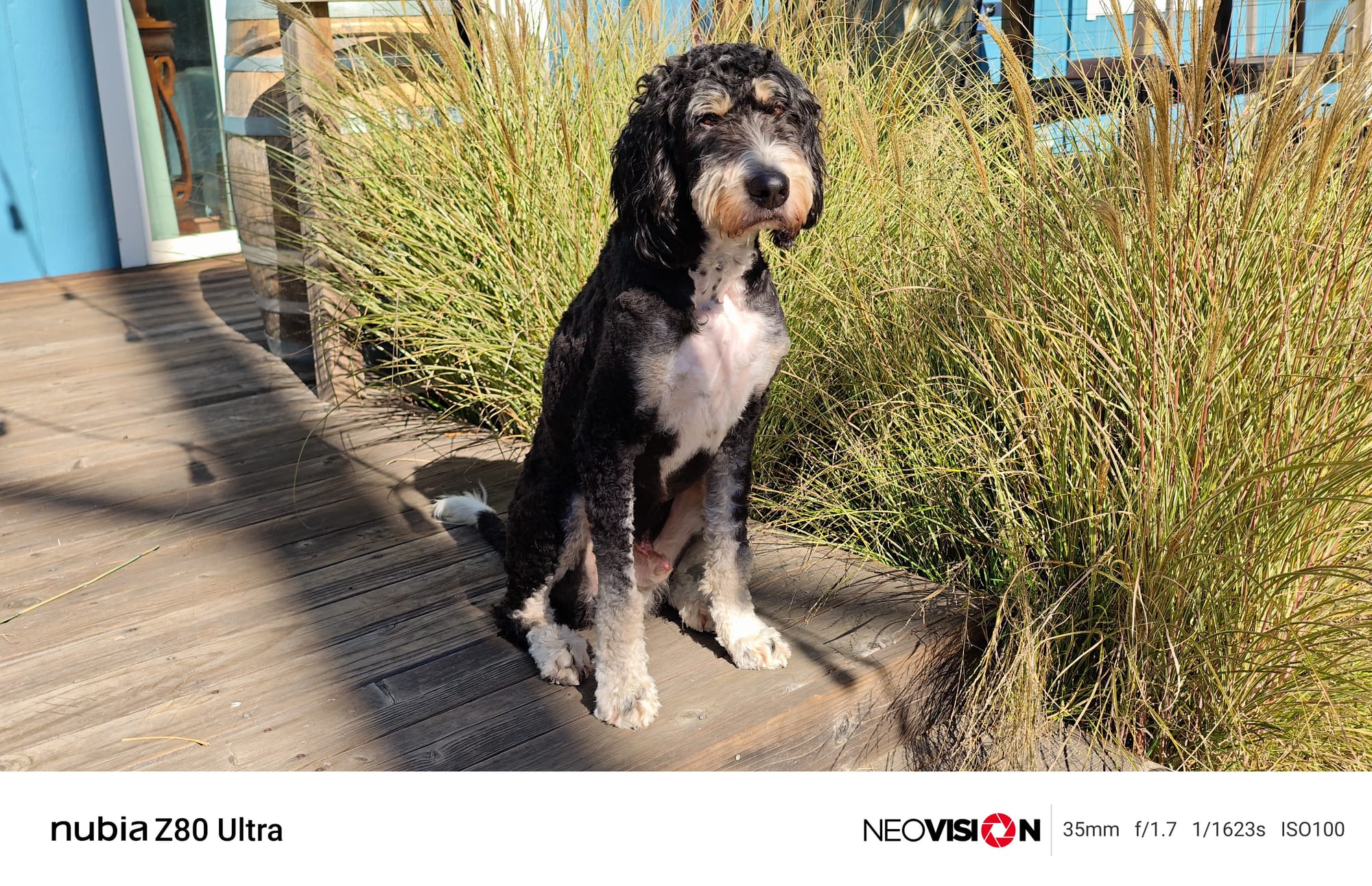
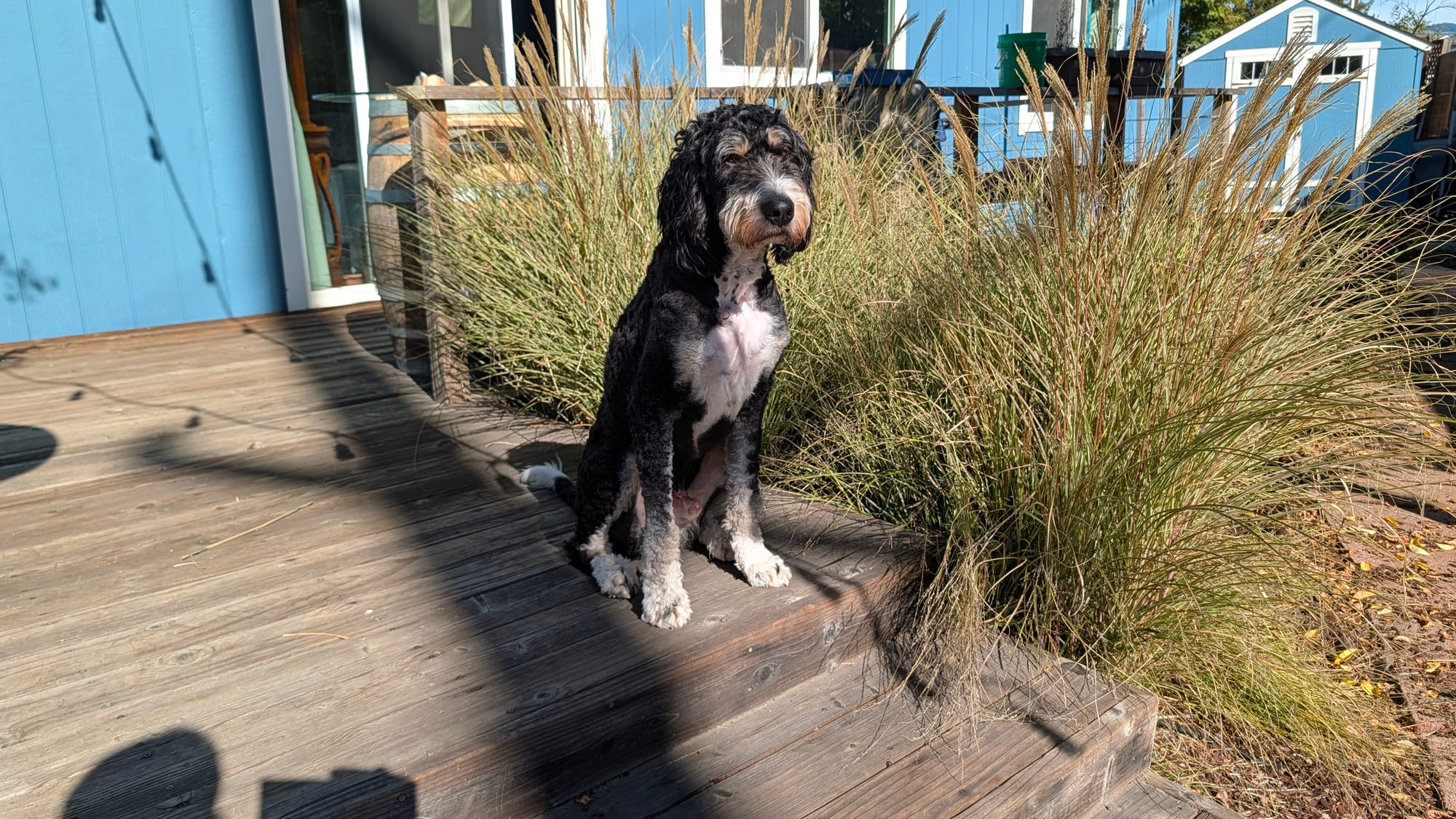
The Brawnson Portrait test. Image: Jason Howell/Android Faithful
This was an interesting dynamic range test: shooting from my studio into the bright yard. The Pixel 10 Pro, with its HDR prowess, rendered the outside world perfectly, capturing rich detail without washing out the highlights. But inside, it made the room look bland and drab. The Nubia Z80 Ultra did the exact opposite: it handled the interior shadow detail beautifully, making it look natural, but it overcompensated with the bright exterior, which came out looking slightly overexposed.
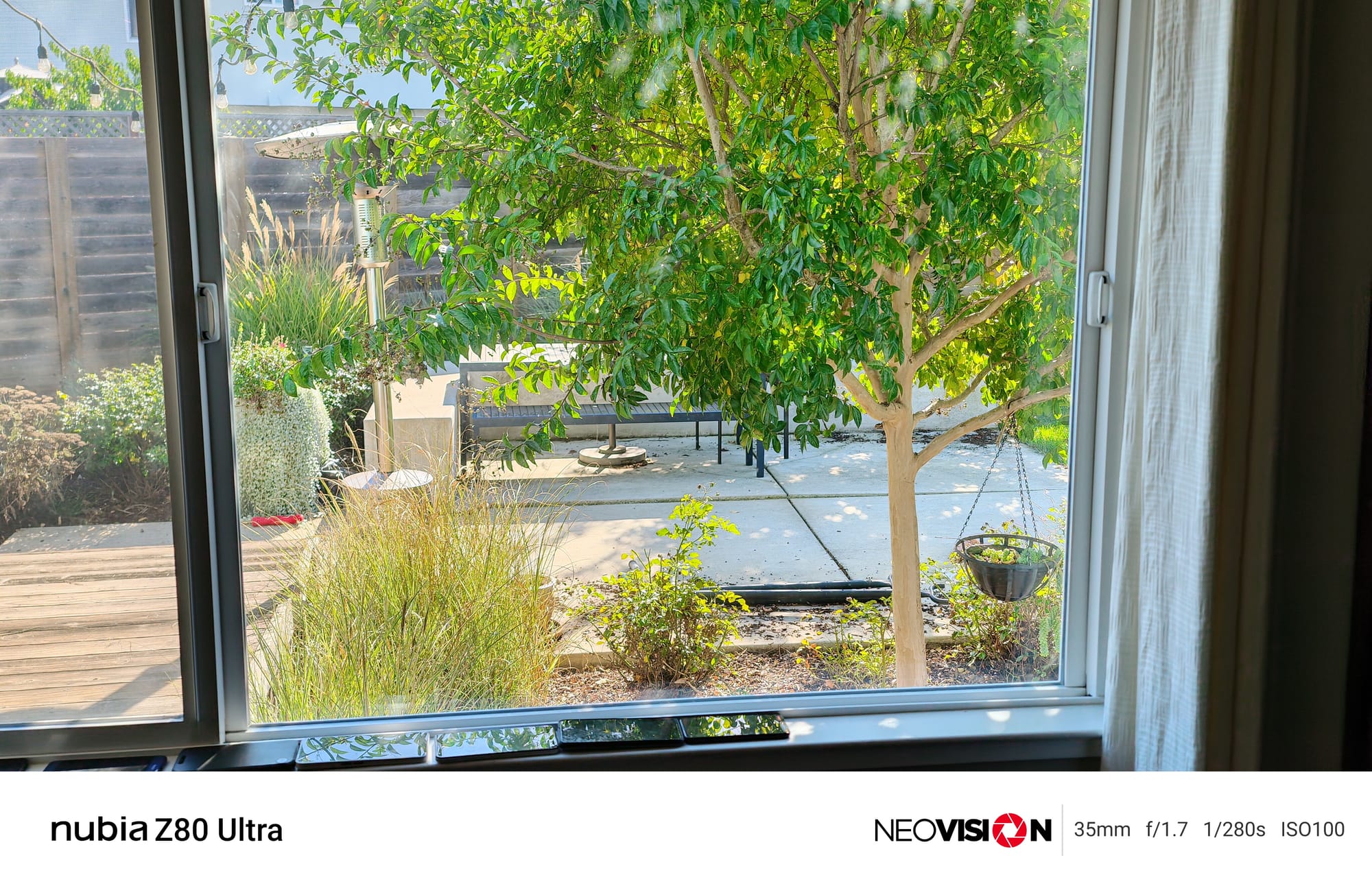
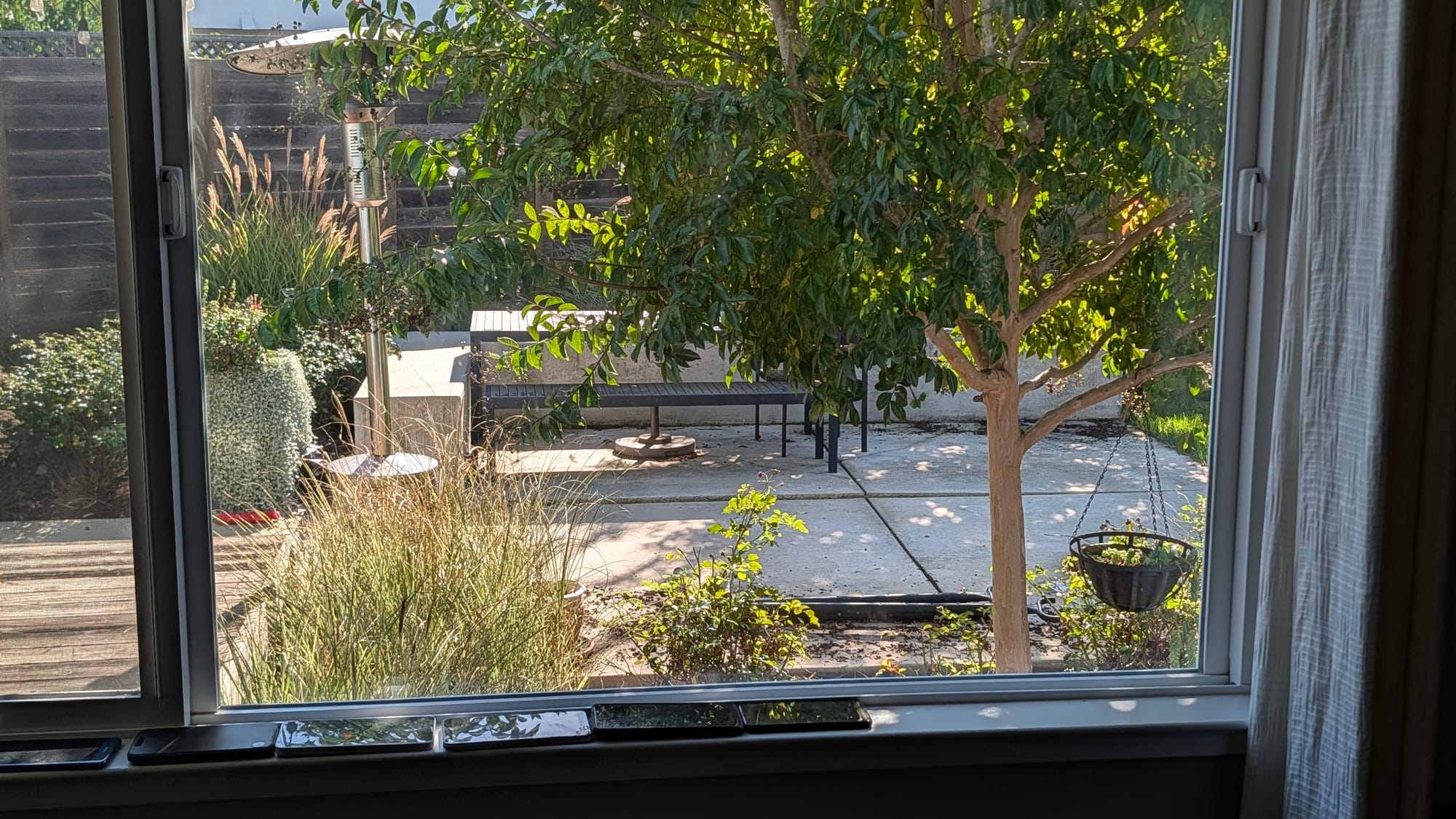
The Inside/Outside test. Image: Jason Howell/Android Faithful
This close-up of a coffee mug in the shade is where the Nubia's 35mm lens truly shines. Its optical background bokeh is fantastic. The blurred foliage and fence lines are clean and solid. The Pixel, by contrast, showed some ghosting artifacts in its blur.
While the Pixel still delivered more natural brightness and color, the Nubia's over-exposure issue was far less noticeable in the shade. For natural depth of field, the Nubia's hardware wins by producing a more pleasing and less digital-looking image. But man, it was close.
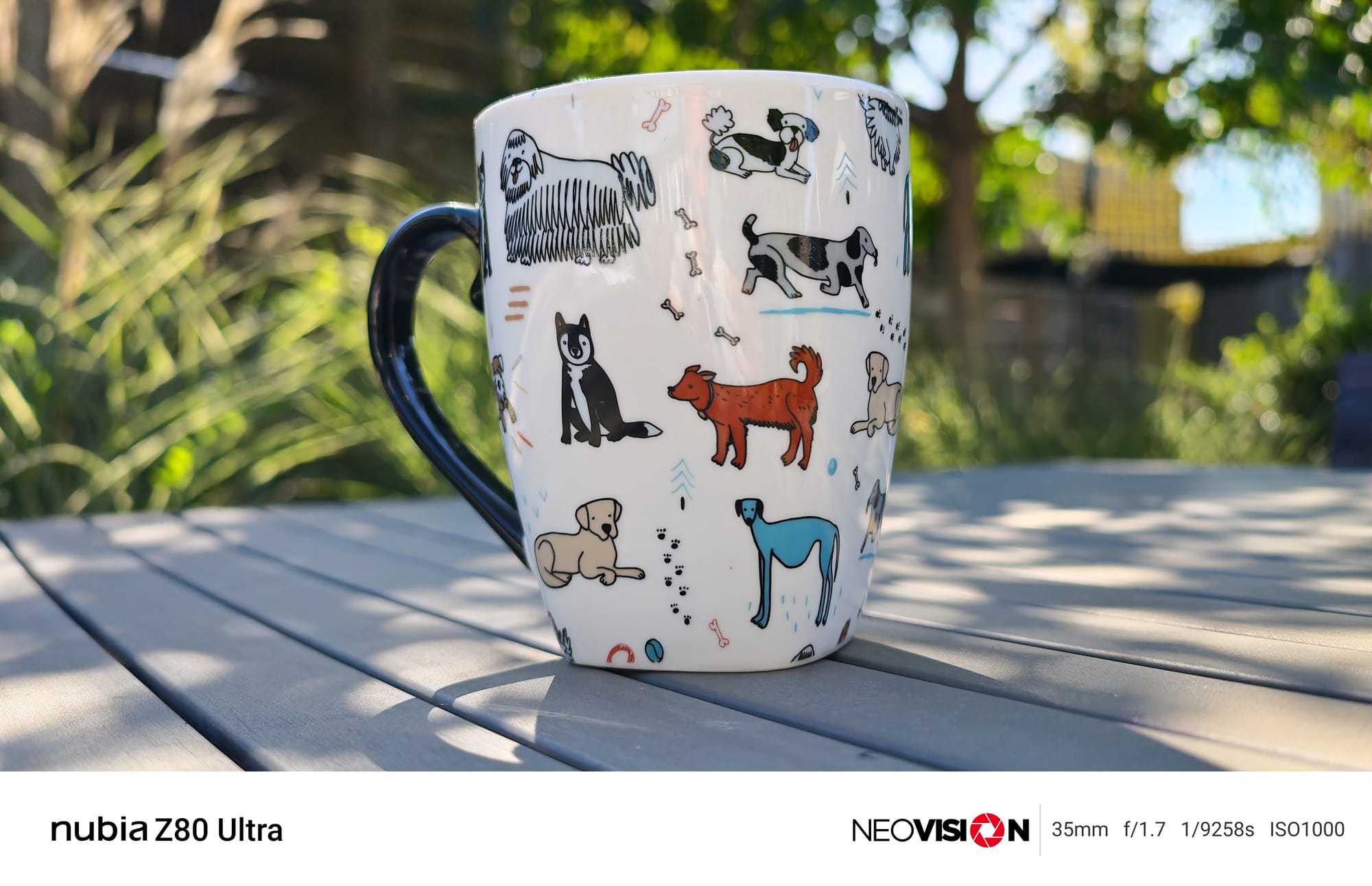
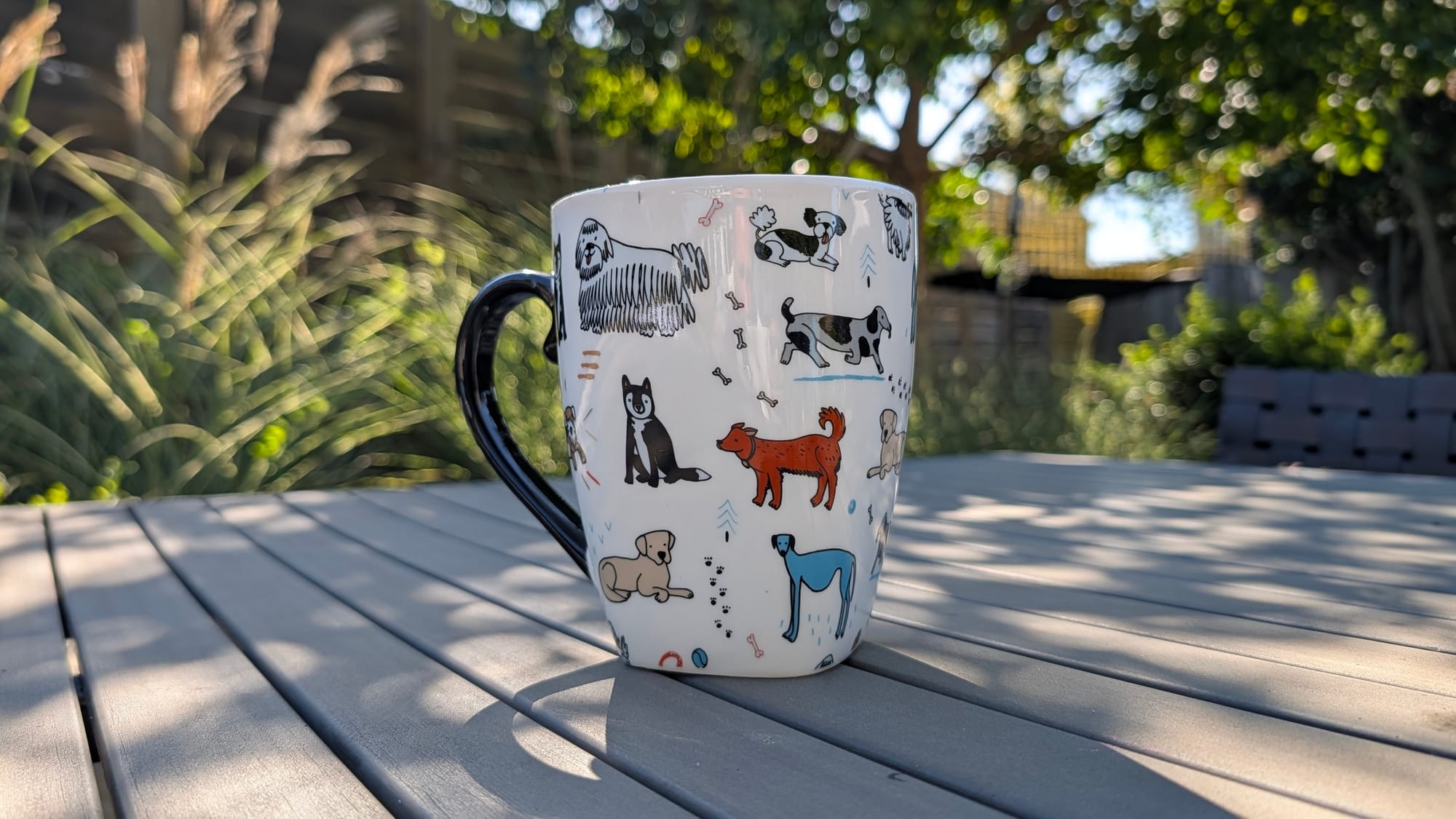
The Bokeh Mug test. Image: Jason Howell/Android Faithful
I pointed the two cameras at our sun-soaked brick fireplace, a perfect test for fine detail up close. The results were surprisingly similar. Both the Nubia Z80 Ultra and Pixel 10 Pro captured a ton of impressive detail in the brick and mortar. The only discernible difference was color temperature, with the Pixel producing a slightly cooler, bluer image, while the Nubia leaned a bit warmer. As far as sharpness and detail rendering go, this was a dead heat. Neither phone showed any aggressive smoothing, and both looked fantastic.
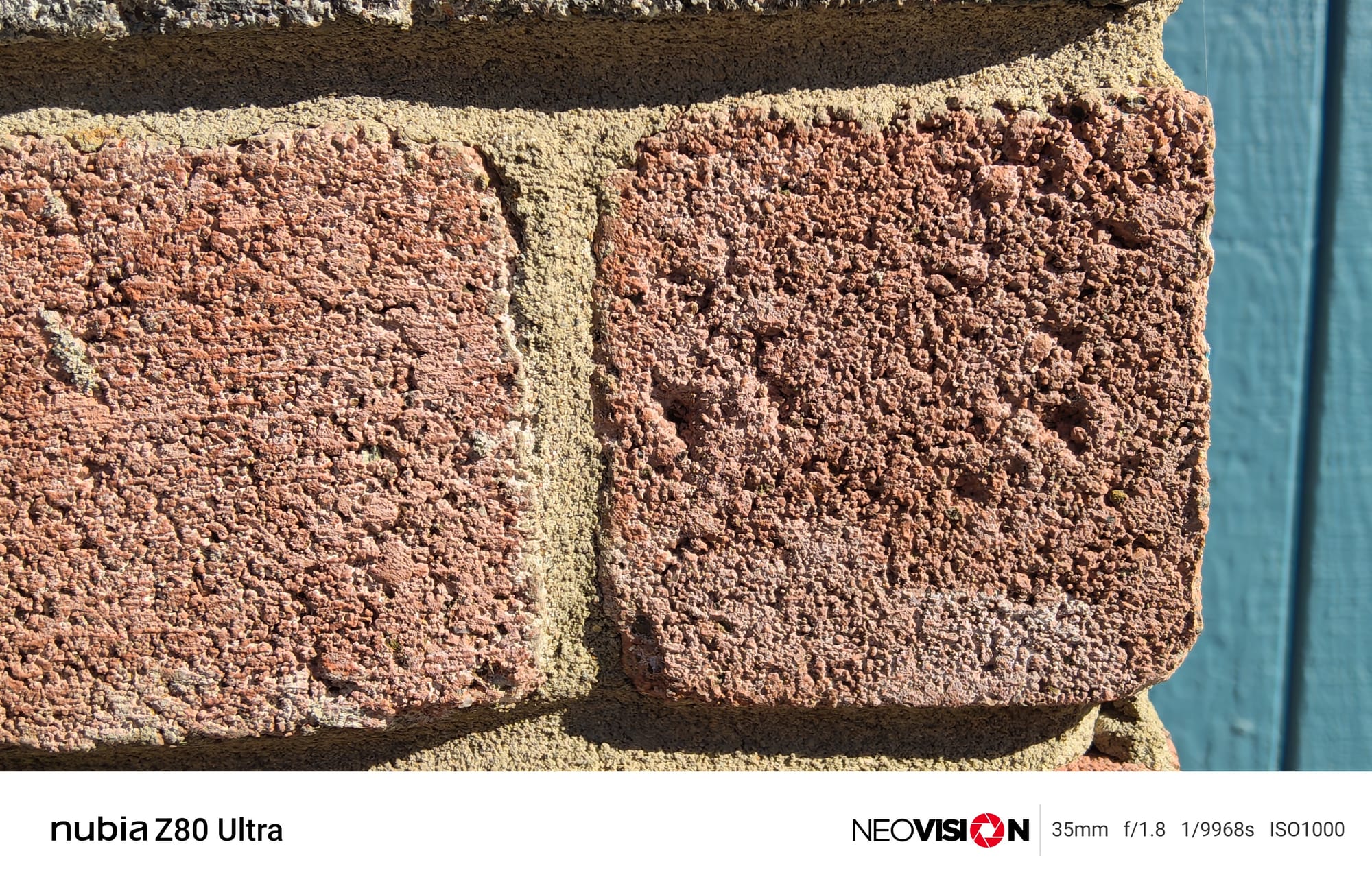
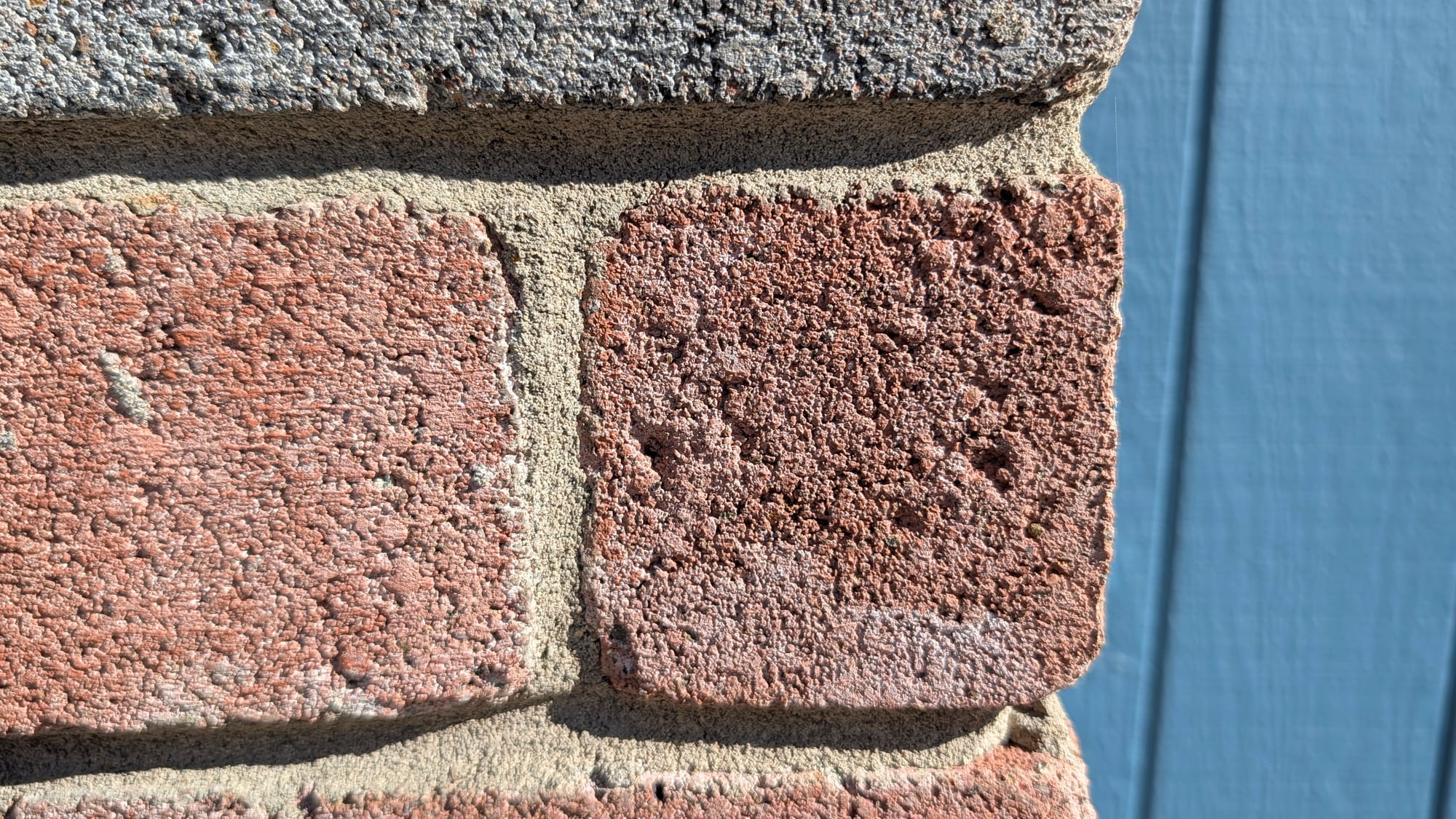
The Brick Texture test. Image: Jason Howell/Android Faithful
Testing in a slightly dim bathroom lit by a pair of LED bulbs, I expected the Pixel to dominate. Reviews claimed the Nubia leans "too warm" indoors, but I saw the exact opposite here. The Pixel 10 Pro produced a warmer, more yellow-toned image. The Nubia's shot was cooler and, to my eye, far more natural in this context. This natural feel extended to the background as well, where the Nubia's optical blur on objects looked pleasing and realistic. In comparison, the Pixel's processing gave the whole scene a more artificial, digital quality—a win for the Nubia.
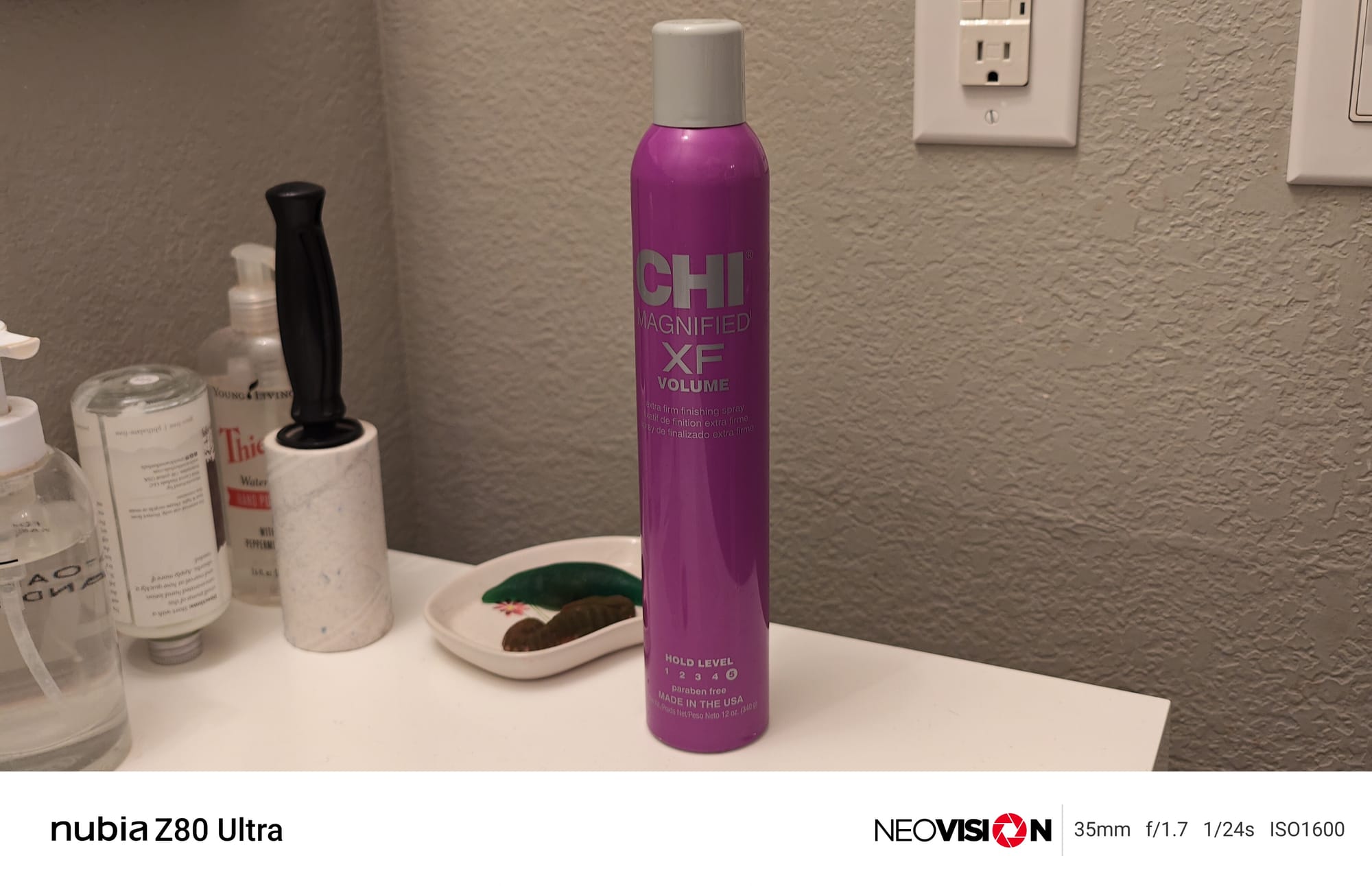
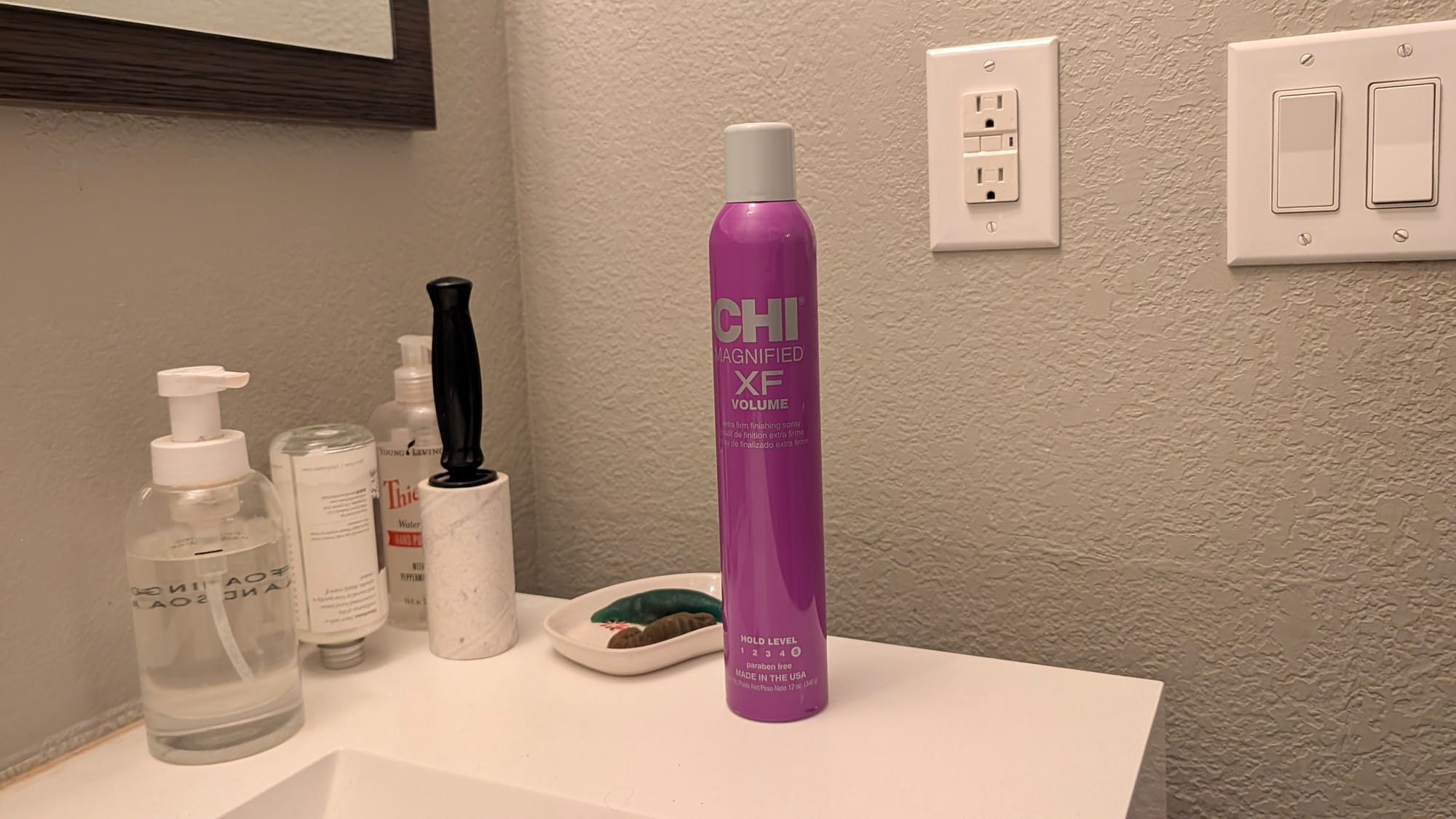
The Artificial Light test. Image: Jason Howell/Android Faithful
I pointed both phones into a very dark corner of the display case, which appears in the background of most of my YouTube videos—a true low-light torture test with none of the fancy lights turned on. Both cameras struggled, but in different ways.
The Pixel produced a cooler-toned image, while the Nubia was noticeably warmer. The real surprise, however, was the detail. The Pixel, famous for its Night Sight magic, completely blurred out the texture of the wall behind the foreground objects. Despite what some reviews say about its noise reduction, the Nubia impressively held onto that background detail. It's a noticeable win for the Nubia in a category I expected the Pixel to dominate.
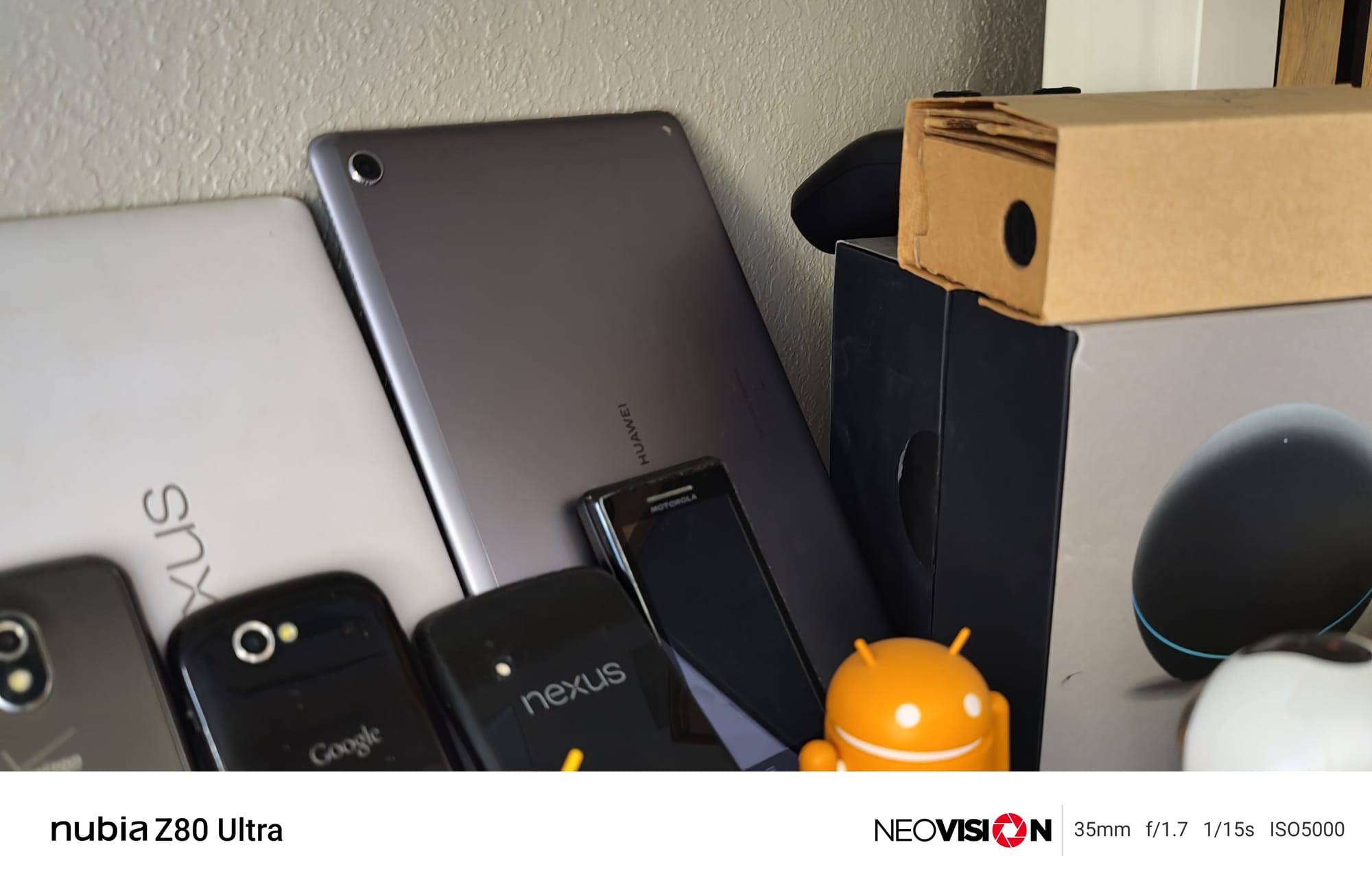
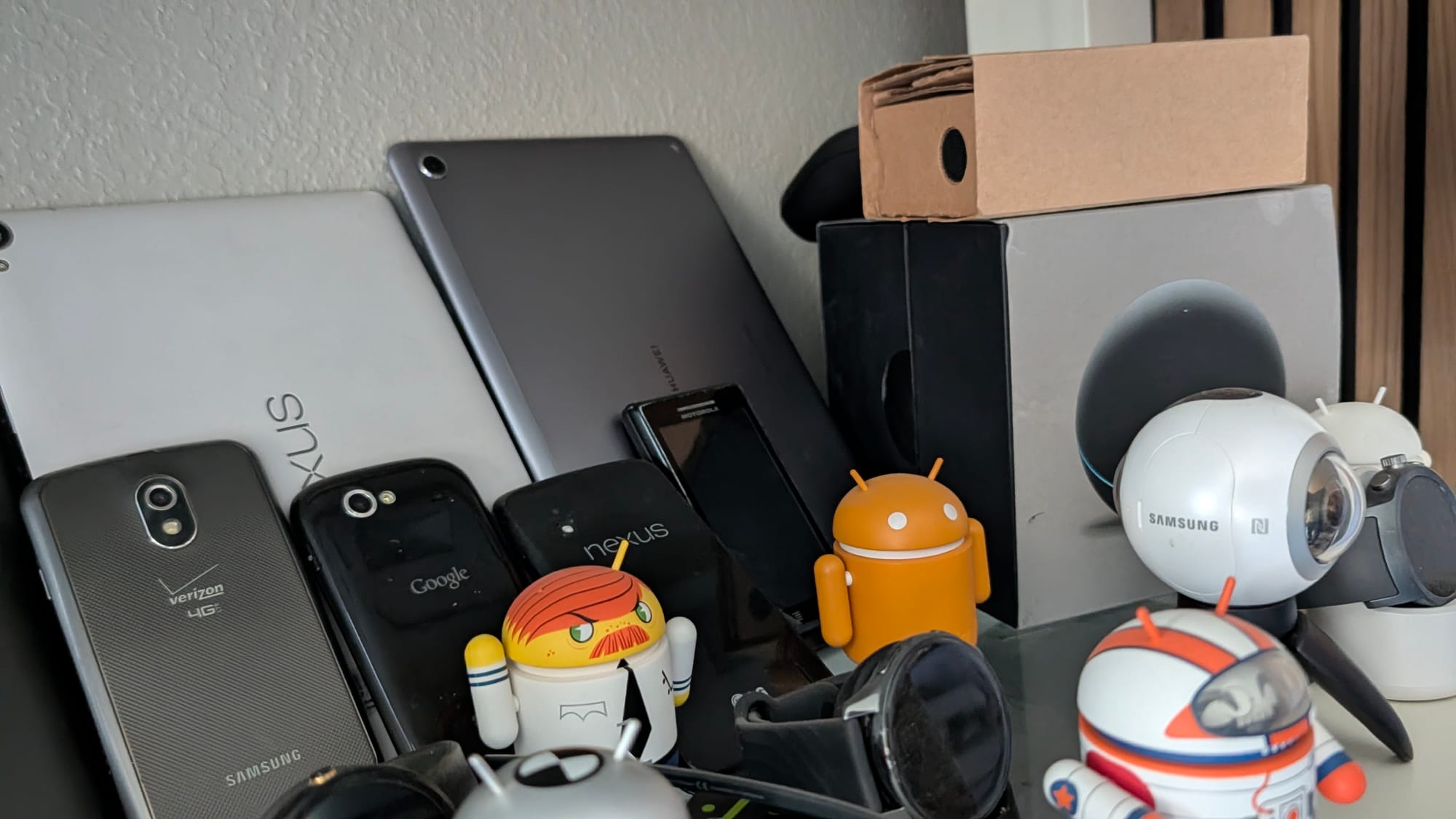
The Shadow Detail test. Image: Jason Howell/Android Faithful
I took a selfie with the main camera in that dim, LED-lit bathroom, and the differences were stark. The Nubia Z80 Ultra over-brightened the scene, blowing out highlights on my forehead and making my skin look a bit red. The Pixel 10 Pro, while casting a "greener" tint on the walls, rendered my skin tone far more naturally. I realized the Pixel's "green" cast was actually a more accurate representation of the room's true light and paint color, which the Nubia had completely altered. For skin tones in this environment, the Pixel clearly emerges as the winner.
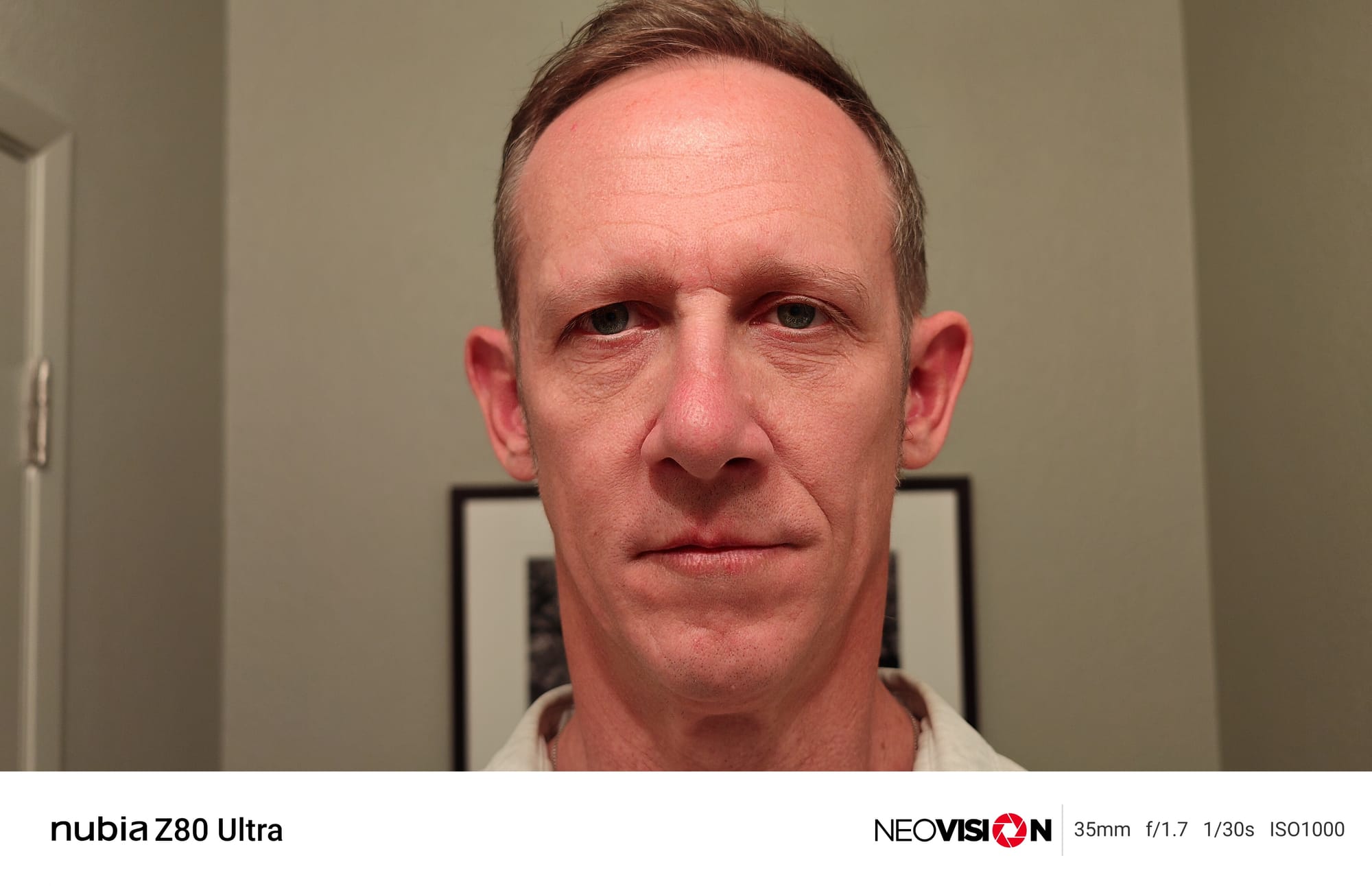
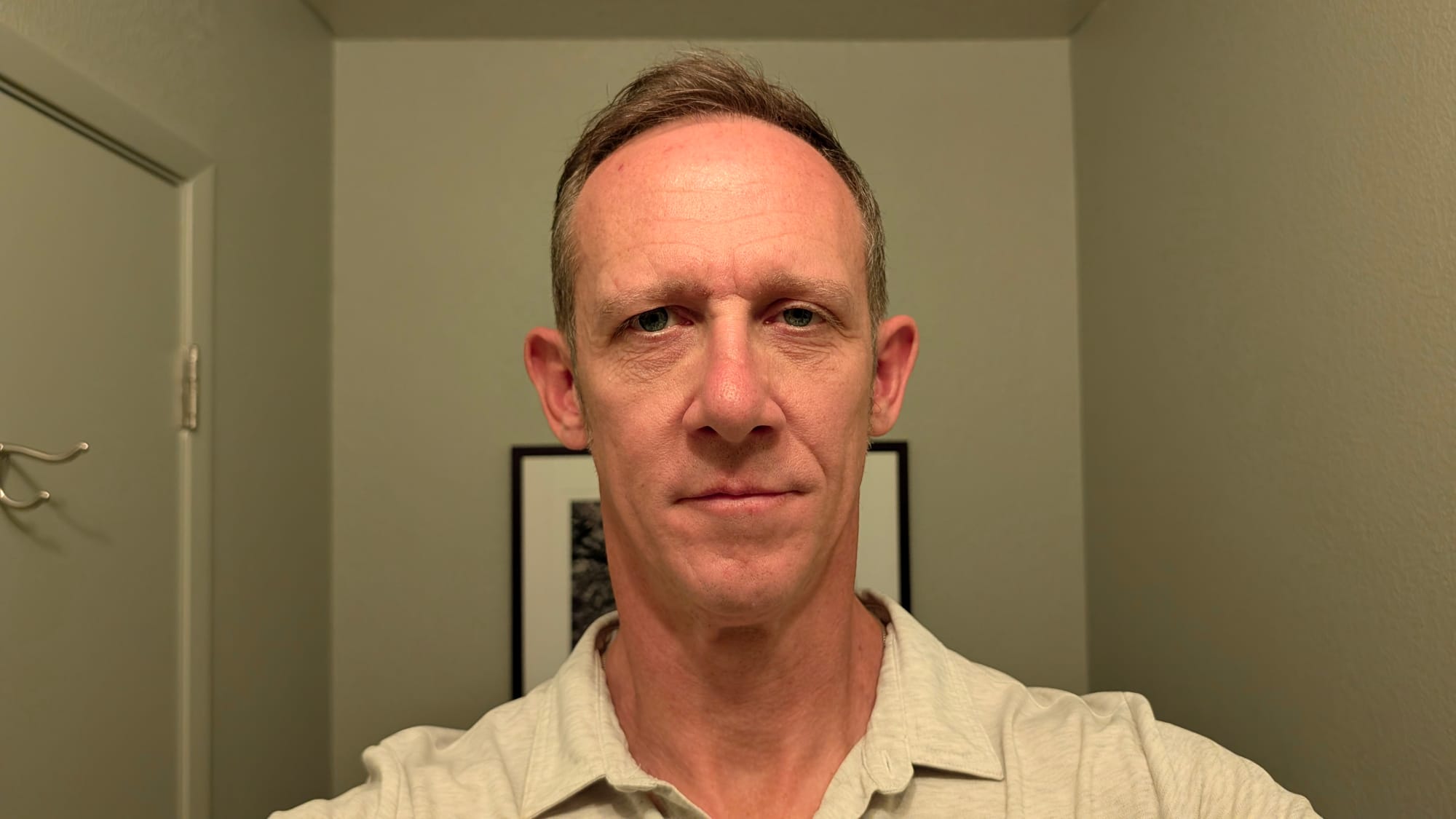
The Indoor Portrait test. Image: Jason Howell/Android Faithful
In a dark shot under a backyard bench, the Nubia's 35mm lens shows its "pro" character, creating a stunningly narrow ribbon of sharpness in the pea gravel while surrounded by beautiful, natural bokeh.
The Pixel, by contrast, has a much broader focal point. This single shot perfectly highlights the Nubia's ability to be incredibly specific, offering a natural lens quality that's hard to find in a phone.
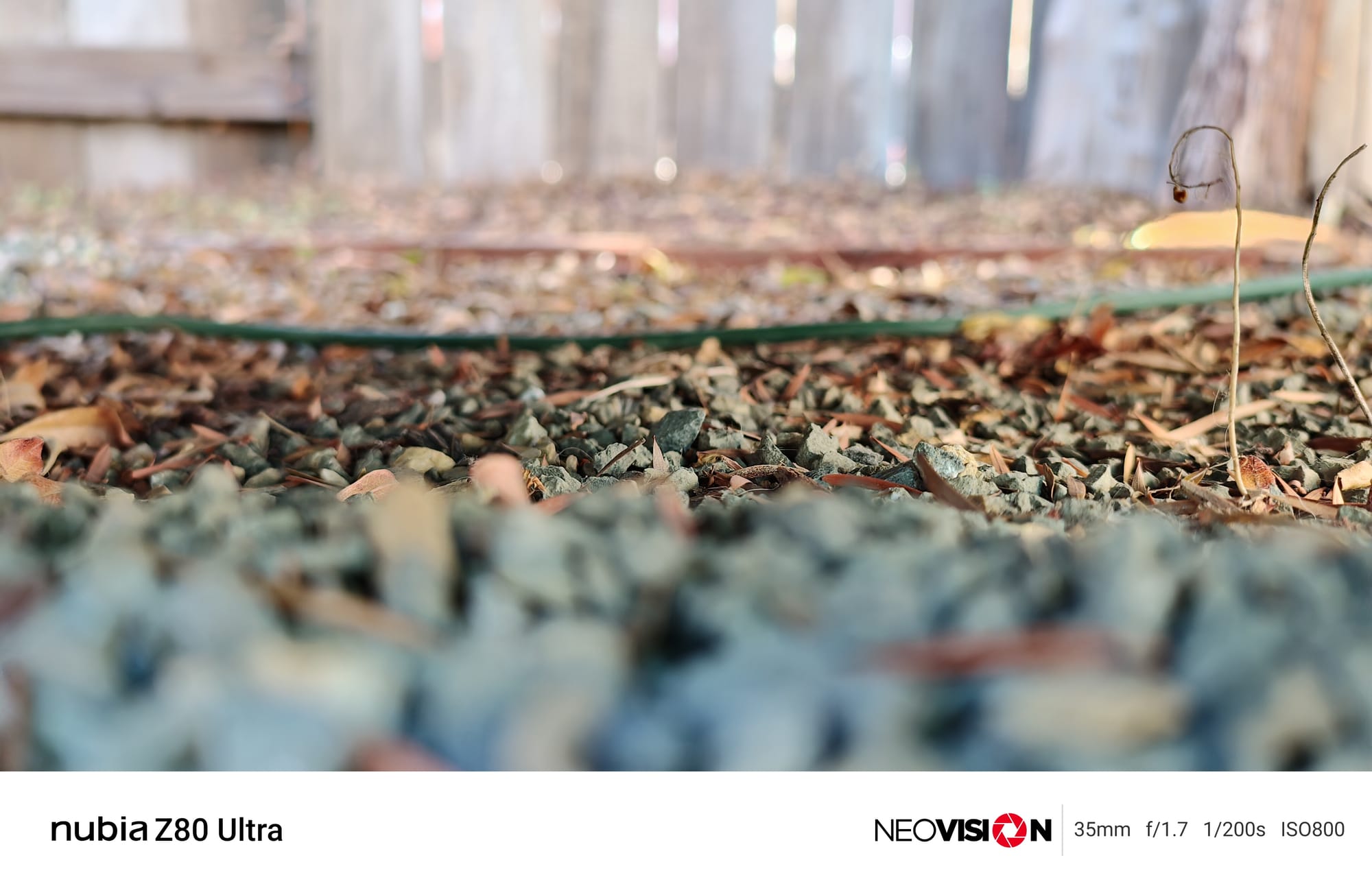
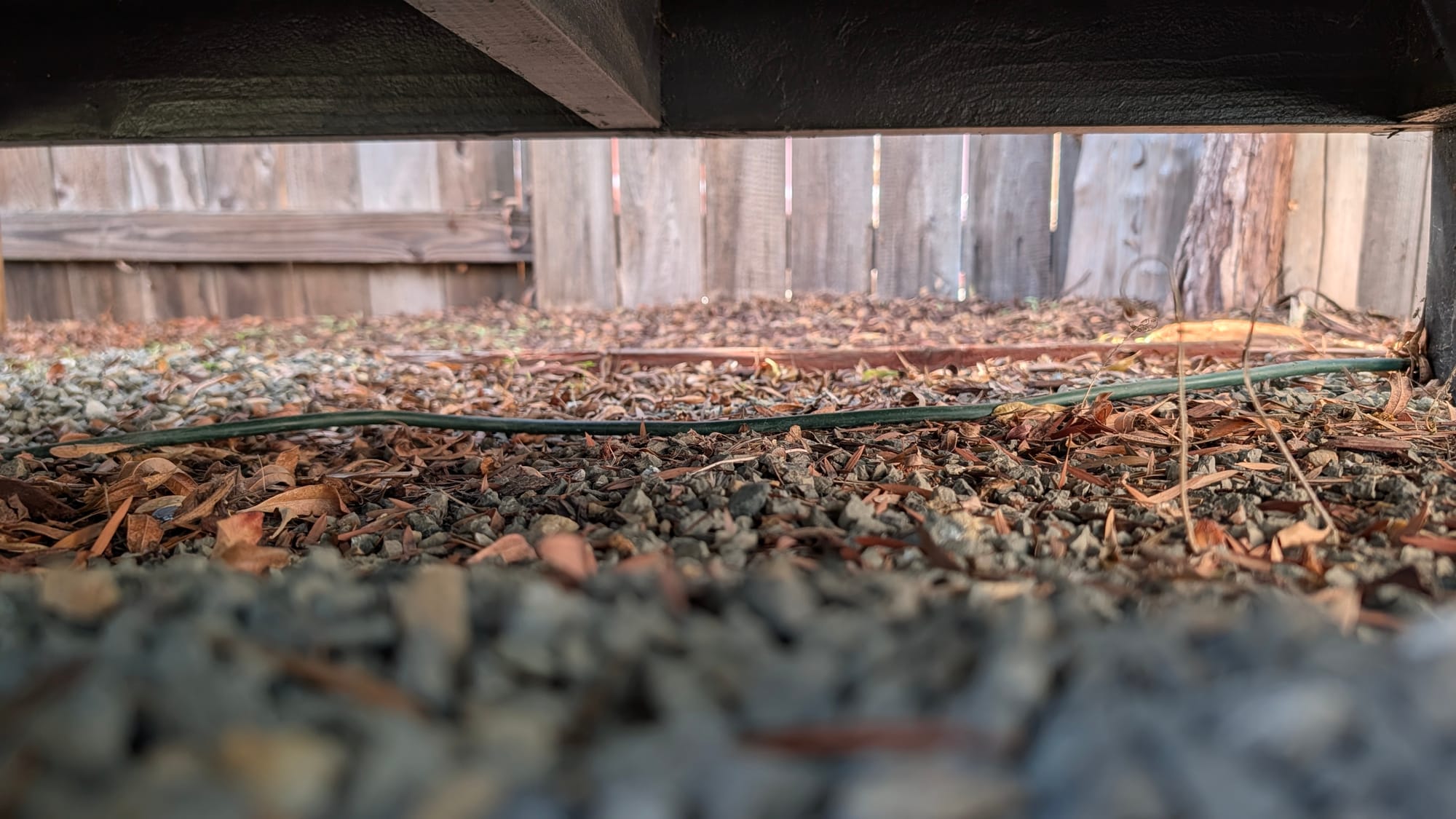
The Narrow Focal Point test. Image: Jason Howell/Android Faithful
This shot down my street illustrates a difference in philosophy. The Pixel 10 Pro's 5x optical zoom is a true long-range lens, easily capturing the street and the detailed hills far behind it. The Nubia's telephoto, which is optically shorter at 85mm, can't reach that far. Within its own range, its colors and clarity are perfectly good, but if you're buying a phone to zoom in on distant objects, the Pixel is in a completely different league.
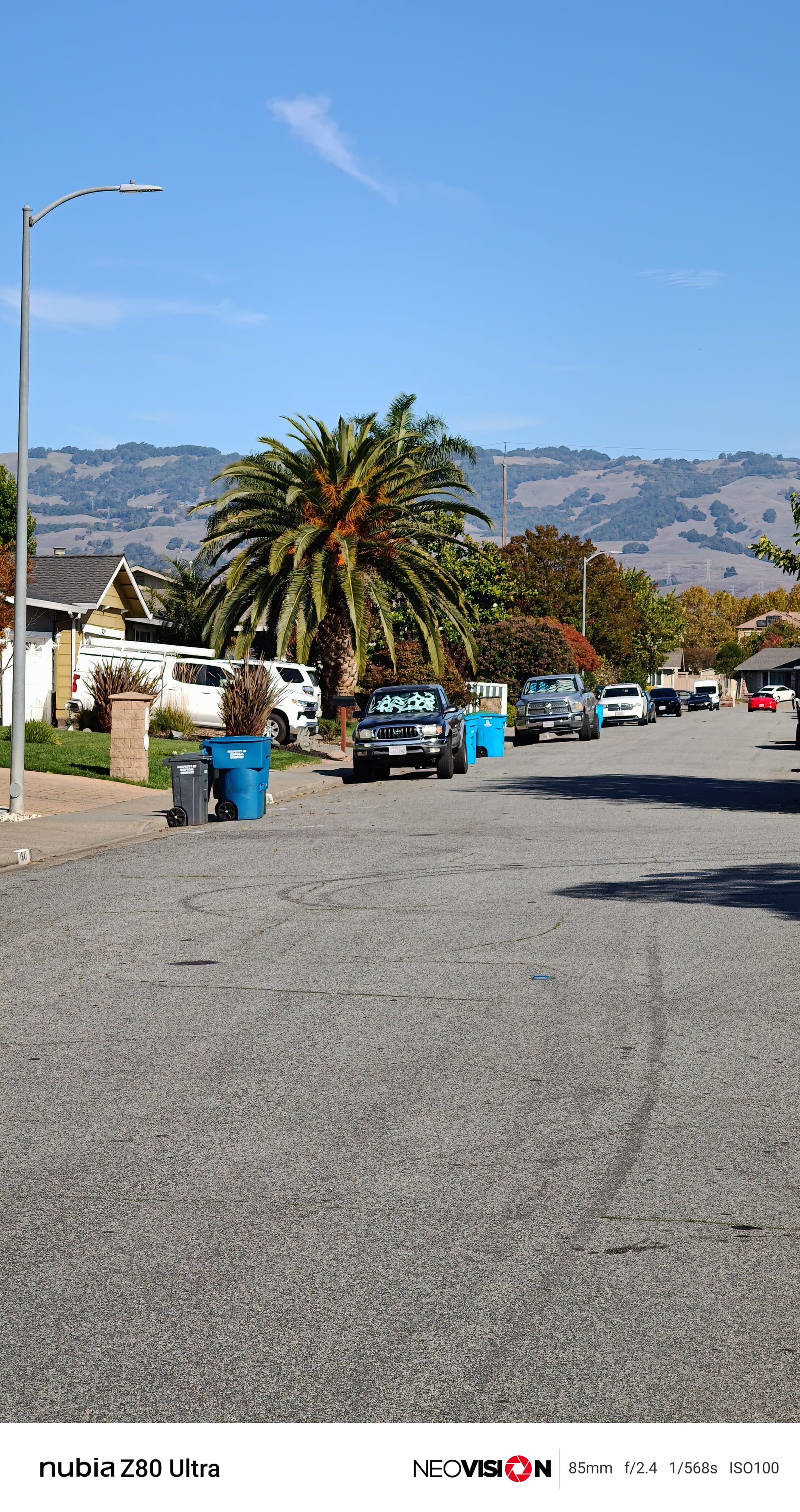
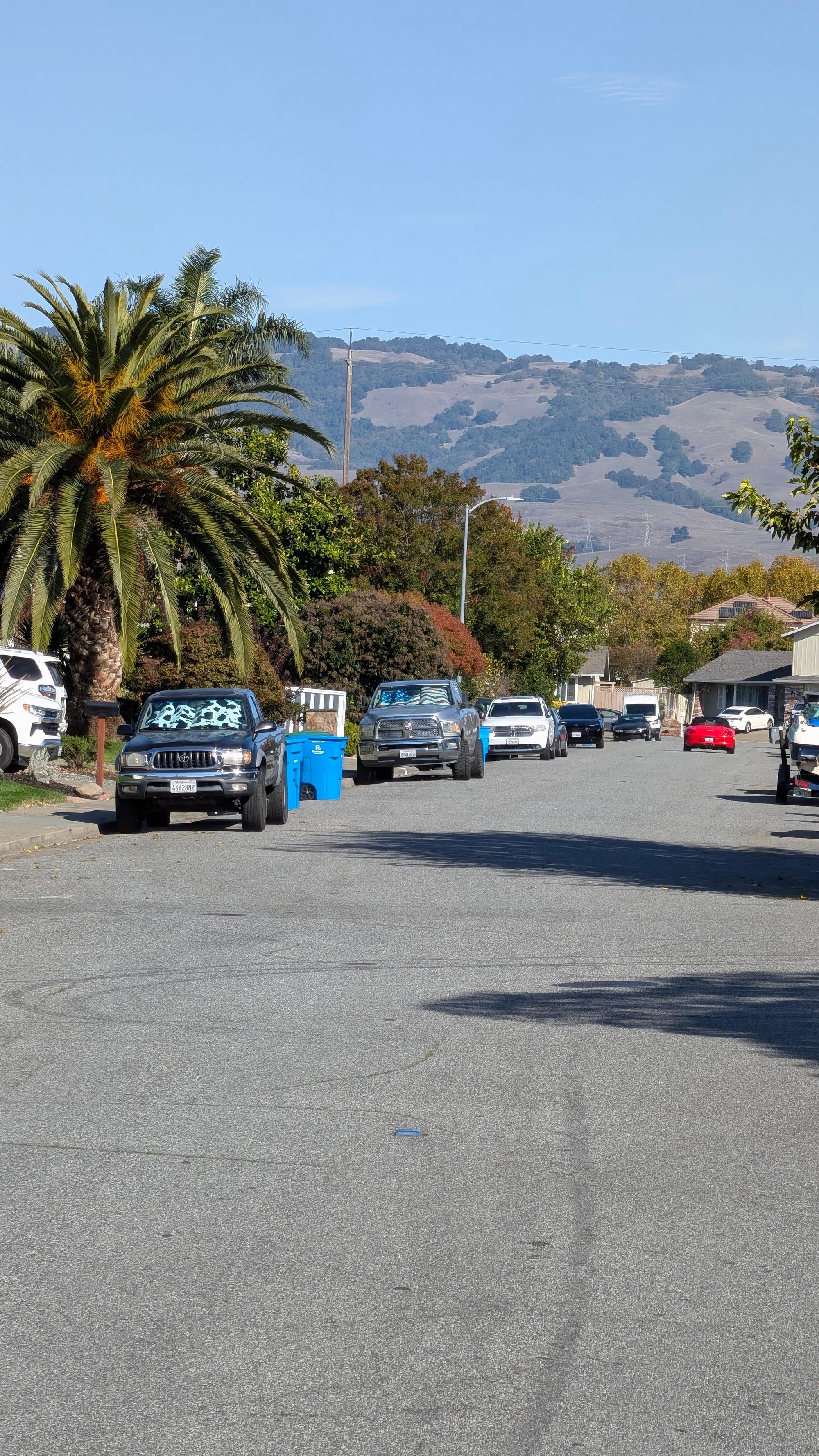
The Zoom test. Image: Jason Howell/Android Faithful
In a portrait taken using only the front-facing cameras, the differences were stark. It was immediately apparent that the Nubia’s front camera applied a ton of smoothing, making my skin look milky, soft, and completely unnatural. It struggled badly with the high-contrast scene as well, washing everything out. The Pixel, by contrast, picked up the real texture of my skin and did a much better job balancing the dark foreground against the bright background, resulting in a far more natural-looking shot.
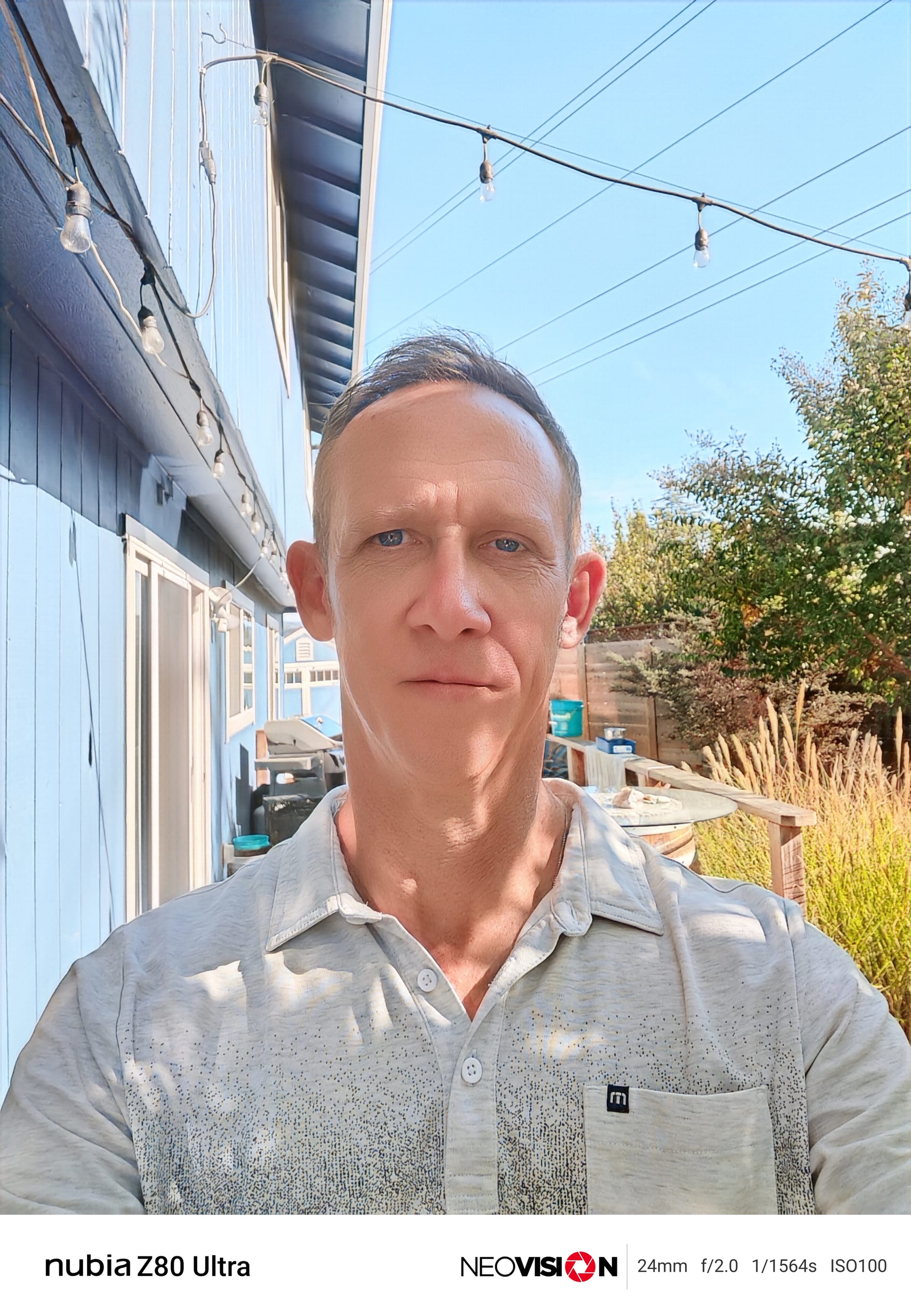
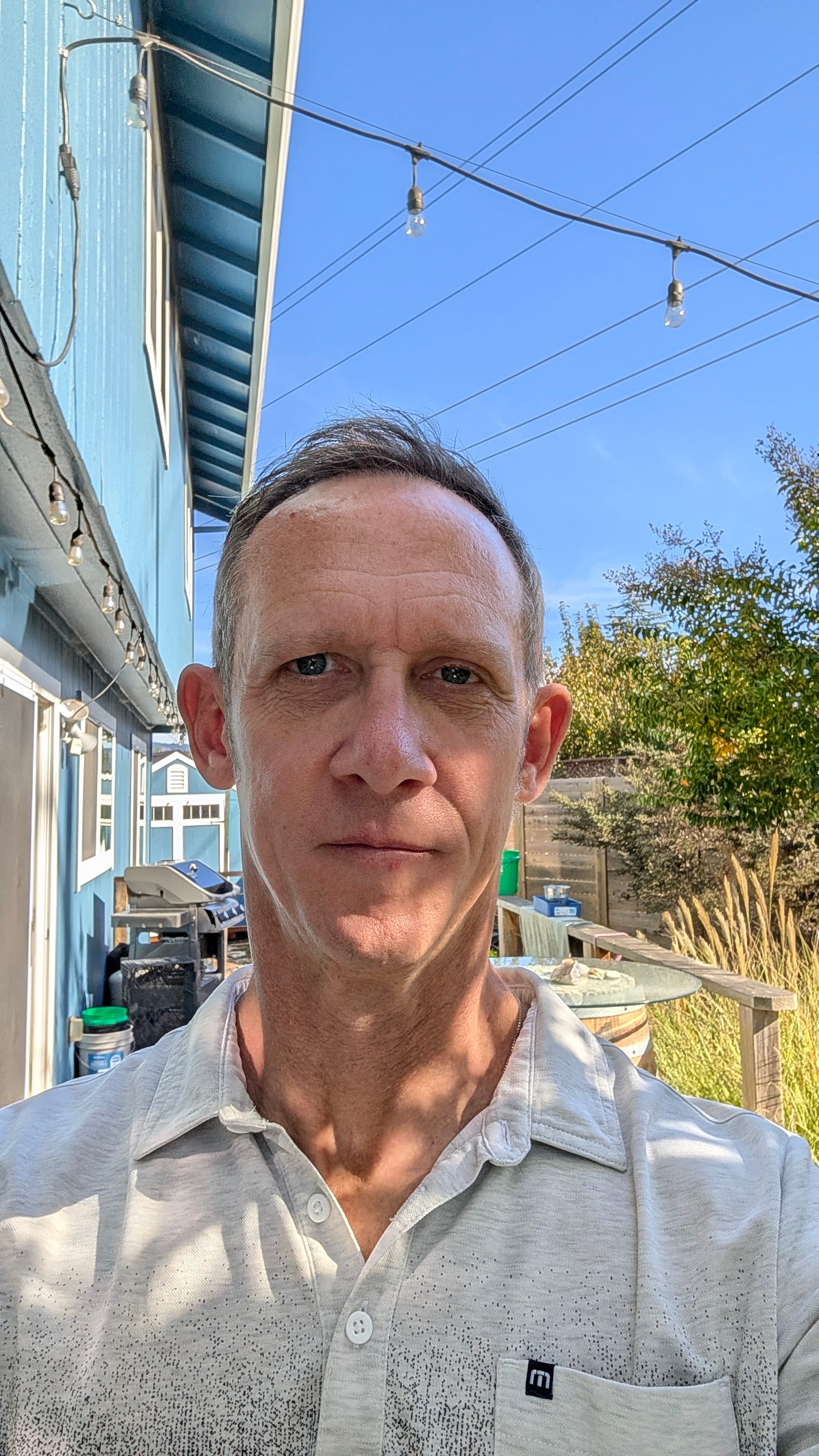
The Front-facing Portrait test. Image: Jason Howell/Android Faithful
The Nubia Z80 Ultra is a creative tool. Its 35mm main lens delivers "pro" quality in the right settings, sometimes in ways that the Pixel can't. It offers excellent optical bokeh and a natural, less digital feel in certain scenarios. However, the output can be inconsistent sometimes. The front-facing camera is also pretty bad.